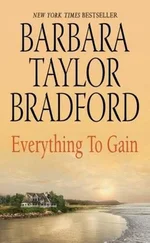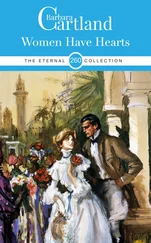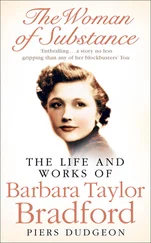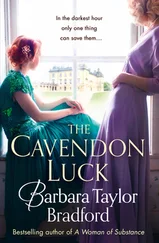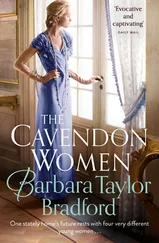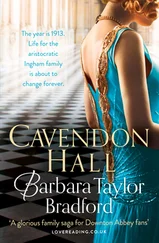‘Didn’t-doesn’t it bother you, knowing you are illegitimate?’ Emma managed to ask.
‘Oh, Mummy, don’t be so old-fashioned. Of course it doesn’t. I’d rather be Paul McGill’s illegitimate daughter than Arthur Ainsley’s legitimate daughter any day of the week.’
Tears welled in Emma’s eyes and she fumbled for her handkerchief. ‘I-I-don’t know what to say,’ she began falteringly.
Daisy leaned forward and held out her arms to Emma. ‘I love you, Mummy. And I loved Paul. I couldn’t have had better parents if I’d chosen them myself. And you have been the most wonderful mother in the whole world.’
‘But why didn’t you tell me you knew before?’ Emma asked in a muffled voice, her face pushed against Daisy’s shoulder. ‘Why didn’t you tell me when Paul died?’
‘I didn’t think it was really the right time. My main concern was trying to alleviate your grief.’
Emma sat back in the chair, blowing her nose. She smiled weakly at Daisy, her face reflecting her love. ‘I’m glad you know, darling. I should have told you myself. But I thought you would react like-that you would be upset and that you would hate me and Paul.’
‘You are a silly goose, Mummy. I could never hate or criticize you or my father for what you did. You loved each other.’ Daisy took hold of Emma’s hand and squeezed it. ‘I’m proud to be your daughter.’ Daisy gave Emma a questioning look. ‘Are you sure you don’t mind my calling the baby after my father?’
‘I’m thrilled,’ Emma said.
The nurse came in, interrupting them. Emma held the baby in her arms and her face glowed as she looked down at the small bundle nestling against her shoulder. This is Paul’s first grandchild, she thought, and her heart quickened. If only he had been alive to see her. Paula McGill Amory, the first of a new generation in the McGill dynasty.
One week later Daisy came home to Belgrave Square, where her old nursery had been beautifully prepared to receive its new young occupant. Almost immediately the child became the centre of Emma’s world, and if she sometimes usurped Daisy’s role as mother, Daisy did not seem to mind in the least. She was gratified to see Emma so joyous and smiling. And she enthusiastically encouraged her mother when she talked of her plans for Paula and her future.
And the future in general was beginning to look brighter. ‘It’s as if Paula’s birth was a good omen,’ Emma said one morning over breakfast, gesturing to the newspaper she was reading. ‘The Allies are really making a breakthrough. I think the war will end soon.’
She was right in this assumption. As the new year eased into spring, the whole of England took heart. In March, the American First Army crossed the Rhine over the bridge at Remagen and established an invasion bridgehead in Germany. Between April 20 and 25, the Russians entered Berlin, and five days later Hitler and Eva Braun committed suicide. The Third Reich, which the Führer had said would last a thousand years, had disintegrated in humiliating defeat. On May 7, the Germans surrendered unconditionally at Rheims in France.
Emma was in Leeds on May 8, which was V-E Day in Britain. She dined that night with Winston and Charlotte and they drank two bottles of champagne in celebration. But in spite of the flags hanging out of windows and fluttering on flagpoles all over Leeds, and the festivities going on around them, Emma felt more relieved than jubilant. And she drew her first easy breath in six years. Her sons were safe, and her sons-in-law, and the sons of her brother and her dearest friends, Blackie O’Neill and David Kallinski. There had been no casualties in their families, and for that Emma was deeply grateful.
And slowly they all came home.
‘I just stopped by to congratulate you, Emma,’ Blackie O’Neill said, striding into the drawing room at Pennistone Royal. ‘Winston tells me the Yorkshire Consolidated Newspaper Company has taken control of the Yorkshire Morning Gazette. So you’ve finally won!’
Emma smiled at him faintly. ‘Yes, I have. But then you always knew I would, didn’t you?’
‘Yes, I did.’ He threw her a sharp glance and asked, ‘How did you do it, Emma? I’m very curious.’
‘Patience, really, and a weak adversary.’ She folded her hands in her lap, looked down at the McGill emerald and then went on crisply. ‘My newspapers are the most successful in Yorkshire and they have slowly eaten up all of the Gazette’s circulation. That paper’s been losing money since the end of the war. To be honest, I deliberately ran the Gazette into the ground, and I did so without compunction. Edwin Fairley is not a good businessman. He should have stuck to law.’ She laughed dryly. ‘And he’s made a few fatal errors, not the least of which was selling a big block of his shares two years ago. He weakened his position. He has not been dealing from strength for a long time.’
‘But he stayed on as chairman of the board,’ Blackie interjected.
‘Yes, he did. But he failed to recognize the tenuousness of his position, and he also underestimated the other shareholders, both the old and the new. He just didn’t seem to realize that loyalty flies out of the window when there’s a great deal of money at stake. The board has been worried about the failing papers for years, and when Harte Enterprises approached them to buy up their shares they were willing to sell, almost to the last man. I’ve been acquiring shares in the company for years, and those, coupled with my last purchases, gave me a lot of power. Those shareholders who didn’t at first sell to me finally threw their weight behind me when I offered to step in and put new management into the company. Very simply, Edwin Fairley was outvoted at the last board meeting and had to step down as chairman. Harte Enterprises made an offer for the remainder of his shares and, surprisingly, he sold.’
‘Quite a coup for you, Emma, eh?’ Blackie remarked. ‘But I’m surprised you weren’t present at that board meeting to witness his demise. Winston said he represented you.’
Emma’s face changed radically and a cold glint entered her eyes. She said, ‘Forty-five years ago I told Edwin Fairley I would never see him again as long as I lived, and I haven’t. You don’t think I want to set eyes on him now, do you?’
Blackie shrugged. ‘I suppose not,’ he responded quietly. ‘Did Winston say how Edwin reacted when he learned you were behind his fall from power at the Gazette?’
Emma nodded. ‘Apparently he was poker-faced. All barristers are good actors, you know. Then he said, “I see.” But Winston told me Edwin had a peculiar look on his face, which he found hard to fathom.’ She paused and stared fully at Blackie. ‘Winston said he thought Edwin looked gratified. Odd, wouldn’t you say?’
‘Yes, I would. I can’t imagine why Edwin Fairley would be gratified you had taken over his newspaper.’ He shook his head, baffled. ‘The paper that’s been in his family for three generations.’
‘God knows,’ Emma said, ‘it’s a mystery to me. I told Winston it was more than likely sheer relief he witnessed.’ She laughed ironically. ‘In one way, you might say I’ve lifted a burden from Edwin’s shoulders.’
‘Aye, mavourneen,’ Blackie said, and his face was unreadable as he lit a cigar. Maybe she’s right, he thought. Maybe Edwin Fairley is relieved, but not for the reason she thinks.
Emma rose. ‘I must go out and look for Paula. It’s time for her lunch. I won’t be a minute, Blackie. Please excuse me.’
Blackie nodded and followed her out on to the terrace. He stood watching her hurry down into the garden, his eyes trained on her and narrowed against the bright August sunlight. Emma drew to a standstill at the lily pond at the bottom of the garden and bent down to talk to Paula, who was playing with her doll’s pram on the lawn. Emma was as lithe as she had ever been, and in the distance, in her light summer frock and with her still luxuriant hair now tinted to the russet-gold shade of her youth, she appeared to be the young girl he had first met on the moors so long ago, and for an instant the decades fell away. He clearly recalled his little servant girl of Fairley Hall, and a slow smile spread itself across his face. Almost half a century had passed and so much had happened, things he had never dreamed possible. How extraordinary life was. And Emma went on for ever, as indomitable now as she had been then. He blinked and shaded his eyes. He saw her smooth her hand over the child’s head and then she straightened up and returned to the terrace, walking briskly.
Читать дальше
Конец ознакомительного отрывка
Купить книгу

